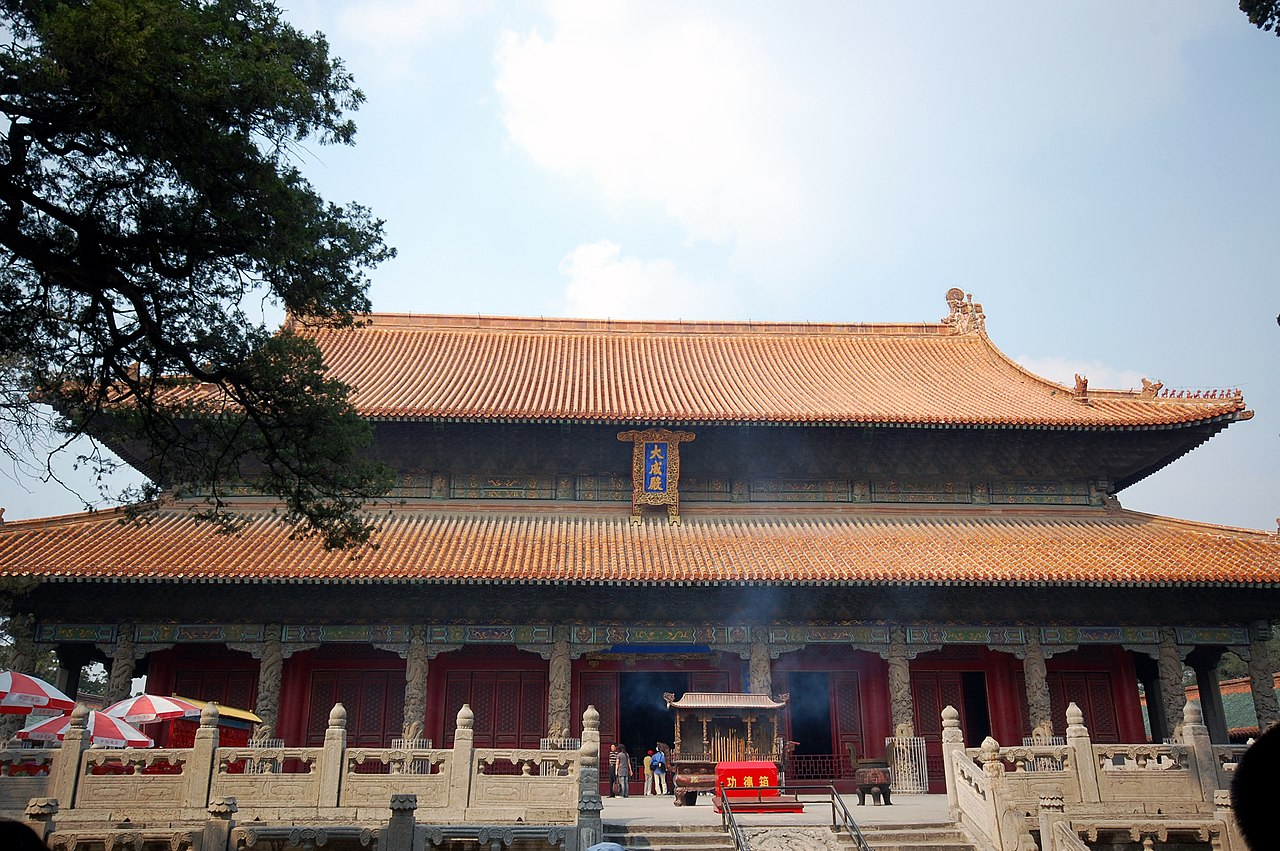More languages
More actions

Confucianism, known as Ruism (儒家) in China, is an idealist philosophy based on the ancient teachings of Confucius (Kǒng Zǐ, 孔子) and Mencius (Mèng Kē, 孟轲 ). It originated during the Spring and Autumn period between the fall of the Zhou dynasty and the rise of the Qin some 2500 years ago.
Beliefs
For Confucius, the world was ordered around natural relationships and the proper following of those relationships. To illustrate his point, he pointed to five "template" relationships that he called the Five Great Relationships: ruler and subject, father and son, husband and wife, older and younger brother, and friend and friend. In each relationship, one person was the leader and the other the follower, but both had obligations towards the other. Respecting and enforcing this natural social order was key to creating a virtuous society. Confucius blamed the fall of the Zhou on the lack of rituals; as tributary subjects started calling themselves kings, they essentially usurped the title from the king of Zhou who did not force them back in line. Thus, in the Confucian theory, the relationship between king and subject was broken and led to the downfall of the Zhou kingdom and the warring Spring and Autumn period.[1]
To restore the proper order of relationships, Confucius argued that society needed to follow rituals properly, such as subjects paying respects to their king. In general, he thought, rituals were required to engrain proper Confucian conduct in society. A critical individual in this process of rectification is what Confucius called the gentleman (jūn zǐ, 君子): an individual who strives to follow proper relationships and rituals in his daily life, serving as a role model for others to follow.[1]
150 years after Confucius, Mencius stated that rulers who violate rituals lose the Mandate of Heaven and may be overthrown.[1] In addition to the Five Great Relationships, the traditional Confucian hierarchy placed intellectuals and government officials at the top, followed by peasants and then artisans, and with merchants at the bottom.[2]
Schools of Neo-Confucianism were later developed based on the original teachings of Confucius and their subsequent interpretation.
See also
References
- ↑ 1.0 1.1 1.2 Dr. Ken Hammond (2004). From Yao to Mao: 5000 years of Chinese history: 'Lecture 5: Confucianism and Daoism'. The Teaching Company.
- ↑ Kenneth J. Hammond (2004). From Yao to Mao: 'Economy and Society in Southern Song' (p. 19). [PDF] New Mexico State University.
